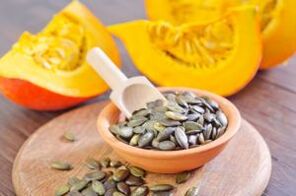Problems with a prostate, or expressed by the scientific language of prostatitis, one of the most common diseases of the male genitourinary system.Nowadays, the deterioration of the ecology, bad habits, the wrong lifestyle, which helps to reduce the general immunity of the body, led to the fact that more and more often in the urologist’s office, how to treat prostatitis and how to quickly cure prostatitis is asked by men under thirty years old.The appointment of treatment will depend on which of the types of this ailment the patient suffers, and how he feels at that moment.In order to understand how to cure prostatitis and whether it is possible to do it yourself, you should find out what prostatitis is, and what a prostate looks like in men (photo), types and symptoms of this disease.

The concept, types and manifestations of the disease
Regardless of the factor provoking the development of prostatitis, two forms of the course of the disease are distinguished, acute and chronic.The first, in addition to discomfort from the urethra, is accompanied by high temperature, chills, general weakness, pronounced pain, and erection problems.But it is important to remember that with proper drug, recovery occurs in a short time.That is why it is important as soon as possible, with the first symptoms indicating the development of prostatitis, seek help.In a timely manner, the not -a -alerted form of prostatitis goes into the chronic stage.At this stage, his symptoms are either smoothed and subside, or make themselves felt periodically.The advanced stage is very difficult to treat, it can take a long time and cost a lot of money and moral forces.
The main types and symptoms of prostatitis
The course of the inflammatory process of the prostate gland has a different clinical picture, at all stages of its manifestation.The list of symptoms of prostatitis can vary depending on the nature of the origin of the disease.How to understand that male strength and health are at risk?The main signs of the acute shape are: increase in body temperature, false urination, white flakes and threads in the urine, accelerated and painful ejaculation.The chronic stage of prostatitis can last years and expressed in pain in the area of the genitourinary system.Consider the symptoms and features of the most common types of disease.
Viral and bacterial prostatitis

It is most often found in men under forty years old, and has an acute and chronic form of the current, which over time can go into one of the most severe stages - purulent prostatitis.With a decrease in immunity for bacteria and viruses that inhabit the microflora of the body, an environment is created that contributes to their growth and reproduction.The main pathogens are microorganisms such as: Pseudomonas and E. coli, Klebsiella, Enterococci.Also, sexually transmitted infections and fungi have a great influence on the development of prostatitis.He is inherent in active development with the following clinical picture:
- Symptoms of general intoxication of the body are manifested;
- chills, fever and increase in body temperature;
- pain in the lower abdomen, in the back, in the genitourinary organs and the anus;
- constipation and pain during defecation;
- difficult urinating or vice versa frequent urge, especially at night, accompanied by pain, reins and burning;
- purulent discharge from the urethra, bloody impurities in the urine and sperm;
- swelling and ulcerative formations on the skin of the penis;
- In some cases, a rash on the body may form;
- increase in inguinal lymph nodes;
- Unpleasant odor, yellow or green sperm.
Stagnant prostatitis
He also has the name “non -infectious” and “congestative”.The prostate in men is often inflamed without the influence of bacterial provocateurs, due to stagnation of blood in the pelvic organs.The cause of development is an infrequent sex life or, on the contrary, too frequent and long sexual acts, a sedentary and sedentary lifestyle.The clinical picture of stagnant prostatitis is quite lubricated and it is not always clear which of the pelvic organs failed to fail.The symptoms are as follows:
- pain in the perineum from the sacrum to the pubic zone;
- a feeling of crowded bladder;
- painful and prolonged night erections;
- sluggish erection if desired to conduct sexual intercourse;
- expansion of the veins of the lower extremities, scrotum, development of hemorrhoids;
- increased fatigue;
- Mild problems with urination

Diagnosis and methods of treating prostatitis
In the event of the first signs indicating problems with the prostate gland, it is necessary to seek the help of a specialist as soon as possible.The urologist will conduct a survey, find out the nuances of an existing anamnesis, and will perform a mandatory inspection.He will also surely prescribe some laboratory research.The exact list of the necessary tests is assigned based on each specific case.The following diagnostic methods will help to determine the diagnosis and understand how to properly treat this or that prostatitis:
- Palpation by a doctor of the prostate gland;
- transrectal ultrasound;
- general blood test;
- general analysis, cytological and bacteriological study of urine;
- Studies of sperm, secret and smear from the urethra;
- Analysis on STD;
- Determination of the number of dogs.
Depending on the results of the studies and well -being of the patient, the urologist prescribes a certain treatment.Prostatitis in men can treat both in a hospital and outpatiently.Consider the main methods used:
Medication
Taking drugs allows you to reduce pain in the shortest possible time.Medication therapy is aimed at the cessation of inflammatory processes, the removal of unpleasant concomitant symptoms and the complete elimination of the causes of pathology.When prescribing one or another drug, the specialist takes into account the patient's age, the presence of concomitant diseases, the degree of development, and the type of disease.
The following drugs are prescribed:

- Antibiotics.Therapy with antibacterial drugs provides for the use of penicillin, tetracycline and fluoroquinol products.They directly affect the pathogen located in the tissues of the gland, completely neutralizing its effect.Available in tablets, capsules, powders, rectal candles and intramuscular injections.The use of antibiotics can occupy from one to two months.Since the improvement of well-being and the complete disappearance of any manifestations of the disease can occur in the middle of the course, it is very important not to interrupt it and continue to adhere to all the doctor's recommendations.
- Non -steroidal anti -inflammatory drugs.They are prescribed at the initial stages of non -bacterial prostatitis and in cases where antibiotics do not have the proper effect.Having an anti -inflammatory effect, such drugs reduce swelling and treat inflammation.Options form rectal candles and suppositories.Due to the possibility of manifestation of side effects, the time for their use is very limited.
- Antispasmodics.The main drug of this series consists of the active substance of the same name.It affects the smooth muscles of the prostate gland, blood vessels and nerve endings, relieves spasms and reduces the intensity of the pain syndrome.
- Painkillers.Strong rubs and pain during urination are frequent satellites of health problems in the stronger sex.Urologists, to relieve pain, prescribe analgesics.In the form of tablets, they can have a mild effect, so experts recommend the use of microclemism that have a direct effect on the prostate.
- Immunomodulators.Since the main reason for the development of prostatitis is precisely the general decrease in the body's immunity, complex therapy necessarily contains drugs that stimulate growth and activation of immunity.
- Hormonal.In cases where the male body has been reduced in the level of testosterone, hormone -containing drugs are prescribed.It is strictly forbidden to take them without the appointment of a doctor.Hormonal drugs will help restore hormonal background and male power.
- Sedative and sedatives.Problems with an erection and a decrease in potency, manifested on the basis of inflammation of the prostate gland, have a negative effect on the psychological health of a man.Constant depression can cause chronic problems with potency.To resolve this issue, drugs are prescribed that contribute to the normalization of sleep and restore a psycho -emotional state.The most popular sedative is the tincture of motherwort.Peretnit depression is treated with tranquilizers.Due to the possibility of addictive, this plan should be taken with special caution and strictly according to a certain scheme.
- Antihistamines.Contribute to the removal of swelling.Their use is permissible subject to patients with bed and home regime.This is due to the fact that the main side effects of such drugs are expressed in drowsiness and reducing attention, coordination of movements.The most commonly prescribed tool is the widely used tool, but due to the narcotic substances contained in it, its acquisition is possible only according to the doctor’s prescription.
Surgical
Indications for this intervention are the inefficiency of drug therapy, suspicion of malignant formations and the appearance of the following complications:

- pelvic inflammation;
- abscesses in the rectum;
- delay or lack of urination, bloody clots in the urine;
- violation of urination caused by the presence of stones;
The most applicable method of surgical effects is the removal of the gland, which is carried out on the operating table under general anesthesia.Together with it, seminal vesicles and nearby lymph nodes are subject to removal.This surgical intervention is performed in two ways:
- The bottom of the crotch or anterior abdominal wall is dissected with a scalpel, and after removing the problem element, seams are applied to the edge of the wound manually.The patient after surgery for 7 to 10 days should remain in the hospital under the supervision of doctors.
- Using an endoscope on the front abdominal wall, 4 punctures are produced, into which a lamp, a camera and a coagulator are introduced, which cuts off the blood vessels from the problem organ and at the same time cauterizing tissue, thereby reducing blood loss.The camera introduced into one of the punctures broadcasts the image on the monitor, which allows endoscope to monitor the course of the operation.The advantages of this surgical intervention are that the patient is returning to the next day to the usual life.
In order to weaken the pressure on the urethra, transurethral resection of the prostate gland is carried out.It consists in removing a separate part of the organ.It is produced using a resectoscope apparatus, which reduces the risk of complications.The result of the use of this surgical intervention is to get rid of pain and symptoms of inflammation.Unlike transurethral resection, manual surgical removal of the gland is characterized by a rather long rehabilitation period.It was used for a rather long time, but has lost its popularity due to insignificant efficiency.But sometimes there are situations where this method is the only way to cure prostatitis.
Non -surgical methods
To date, non -surgical methods of treating prostatitis are increasingly popular.These include:

- Ultrasound.The most effective method, which consists in ultrasound effects on the affected organ.Lack of pain and high efficiency are the main advantages of this technique;
- Cryodestruction.This method implies the removal of inflamed tissues with liquid nitrogen, which began to reborn into malignant formations;
- Massage.It is an addition to drug therapy and enhances its effect.Finger massage improves blood circulation and outflow of secretion.Massage can be treated if there is no acute form of the disease.
- Acupuncture.It is appropriate in cases of chronic pelvic pain.
- Hirudotherapy.Therapy with leeches has a beneficial effect on the renewal of blood and its flow to the gland.
A few words about prostatitis prevention
Having learned what prostatitis is and how it manifests itself, you should think about prevention.It has long been known that it is better to prevent ailment than later to think, how to cure it.An important condition for preserving male health is regular examinations with andrologist and urologist, even if nothing bothers.Also, for the prevention of renewal of prostatitis, it is important to comply with the following conditions:
- Conducting a healthy, active lifestyle, an increase in physical activity.Each office worker, driver and an amateur to sit on the couch, needs to get up every 15 minutes and make a small warm -up that improves blood circulation.
- Eat healthy food, a large amount of water, and abandon alcohol.Grain cereals, seafood, fresh fruits, vegetables and sour -milk products rich in vitamins and minerals that every man needs so much;
- Suggest and avoid frequent change of sexual partners.Sexually transmitted infections poorly affect both the organs of the genitourinary system and the general condition of the body;
- Lead a regular, healthy sex life.Three times a week and no more than once a day, such a number of sexual intercourse will maintain both relationships with a partner and male health.

































